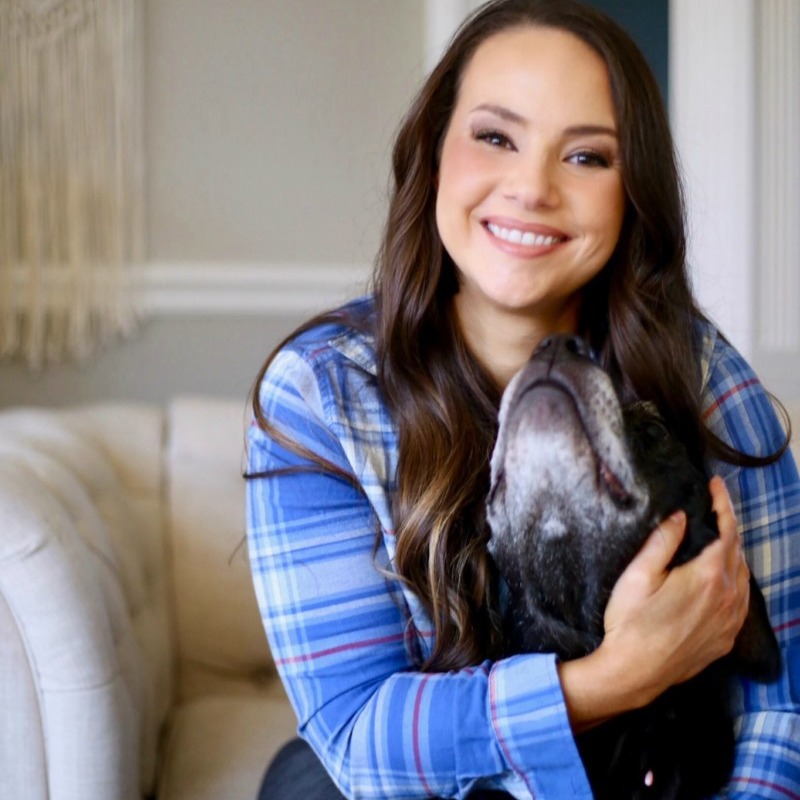Week 5
Adverse Reactions & Ingestion of Essential Oils
Adverse reactions are common in the world of essential oils and that’s because essential oils are misunderstood and misused. Especially when using them with animals it’s important to err on the side of caution because our animals cannot speak to us. It’s not fair to force an oil on them that could harm them.
Many people will tell you that the ‘pure essential oils’ can cause no harm because they are pure. That is simply NOT true. The excerpt below from Tisserand Institute lays this out perfectly:
“Pure essential oils can’t cause adverse reactions”
Proponents of the detox theory may also suggest that adverse reaction can only result from the use of adulterated essential oils and, by extension, assert that “certified” or “therapeutic grade” essential oils from a trusted brand can’t elicit adverse reaction (Stewart, n.d.). Terms such as ‘therapeutic grade’ ‘certified pure therapeutic grade’ or ‘clinical grade’ are not assigned, regulated, or endorsed by any governing body but rather marketing terms (often trademarked) leveraged by some essential oil suppliers; they don’t assure safety (or, variously, lack of potential for adverse reaction) in the use of an essential oil or blend, nor can they account for how the context of the user—or the oil—may compromise safe use. Very few adverse reactions are caused by impurities in an essential oil. Even if they are there, they are usually not present in sufficient concentration to cause a safety risk, and even impurities are not necessarily toxic. Almost all adverse reactions can be explained by the natural constituents present in an essential oil. Oregano oil is a potential skin irritant because of its 70-80% content of carvacrol, which is an irritant. Cinnamon bark oil is a potential allergen because it consists of 65-80% cinnamaldehyde – a known allergen. Bergamot oil is phototoxic because it contains 0.3% of bergapten, a potent photosensitizer. And, even the “purest” essential oil may be prone to oxidation that further increases the risk of adverse reaction.”
Excerpt and photo from Tisserand Institute Post on ‘Detox Theory’ https://tisserandinstitute.org/essential-oils-and-the-detox-theory/
With their extreme scent sensitivity, dogs are very prone to adverse reactions in essential oils. How do you avoid adverse reactions? Use oils safely and do NOT let animals ingest them.
Ingesting Essential Oils - Don’t Do It!
Ingesting essential oils is not a recommended practice in the world of clinical and therapeutic aromatherapy for pets or people. It is frowned upon by worldwide aromatherapy organizations including The National Association for Holistic Aromatherapy, Federation of Holistic Therapists, Alliance for International Aromatherapy, and the International Federation of Professional Aromatherapists. It is widely recommended by multi-level-marketing agencies and salespeople. You should be able to see the BIG difference in those not making the recommendation vs. those who are. Essential oils are not soluble in water (they do not dissolve) and therefore it makes them much harder for the body to metabolize the essential oil. It puts stress on the body and its organs. With all the benefits that essential oils can provide, I don’t know why people blindly ingest them or give them to their pets. You’d never give your dog over 20 cups of peppermint tea to soothe their stomach so why would you give them the equivalent of that via one drop of peppermint essential oil?
“A Certified Clinical Aromatherapist will never recommend adding essential oils to your water as a safe form of ingesting. Essential oils float on the surface of the water and hit the insides at 100 concentration. This can cause redness and irritation right away, and over time can cause ulcers.” - Lea Jacobson, Clinical Aromatherapist
Reported adverse reactions with unsafe use of essential oils such as ingesting or not diluting have included:
- Skin and allergic reactions
- Anaphylaxis
- Ulcers, vomiting, diarrhea
- Phototoxicity
- Hypersensitivity
- Anxiety and panic
- Redness, itching, swelling, burning, hives
- Blood pressure drop
- Seizures and neurological issues
- Kidney damage
Particularly those who love certain brands of an essential oil and preach about ingestion will say ‘well the FDA says it’s ok’ - but that is not really true. They also might say ‘well there are safe for ingestion lines of oils made for ingestion’ -these oils aren’t made any safer, purer, more therapeutic nor are they approved by the FDA for internal use. Lea Jacobson sums it up perfectly below when addressing these issues:
“What about FDA Approval and the Vitality Line of Essential Oils? You might be under the impression there are essential oils which are FDA approved. This is not true. The companies that state this might be in compliance with the FDA when it comes to the labeling requirements and rules, but the FDA does not approve/disprove the contents of the bottle. You can call them and verify: 1-888-463-6332
As for the "Vitality" line by Young Living, it is a different label, but the same contents. They updated their labels with a Supplemental Facts area in order to be compliant with the FDA, who tells companies that wish to have their customers consume a product they need to add the Supplemental Facts label. That is where it starts and ends. The FDA does not care about the contents, they care that the label states a serving suggestion.However, according to the FDA, this labeling applies to the use of essential oils as food flavorings in very small amounts, not when used therapeutically - and certainly not when adding multiple drops to your water!”
- Lea Jacobson, Clinical Aromatherapist https://www.leajacobson.com/

